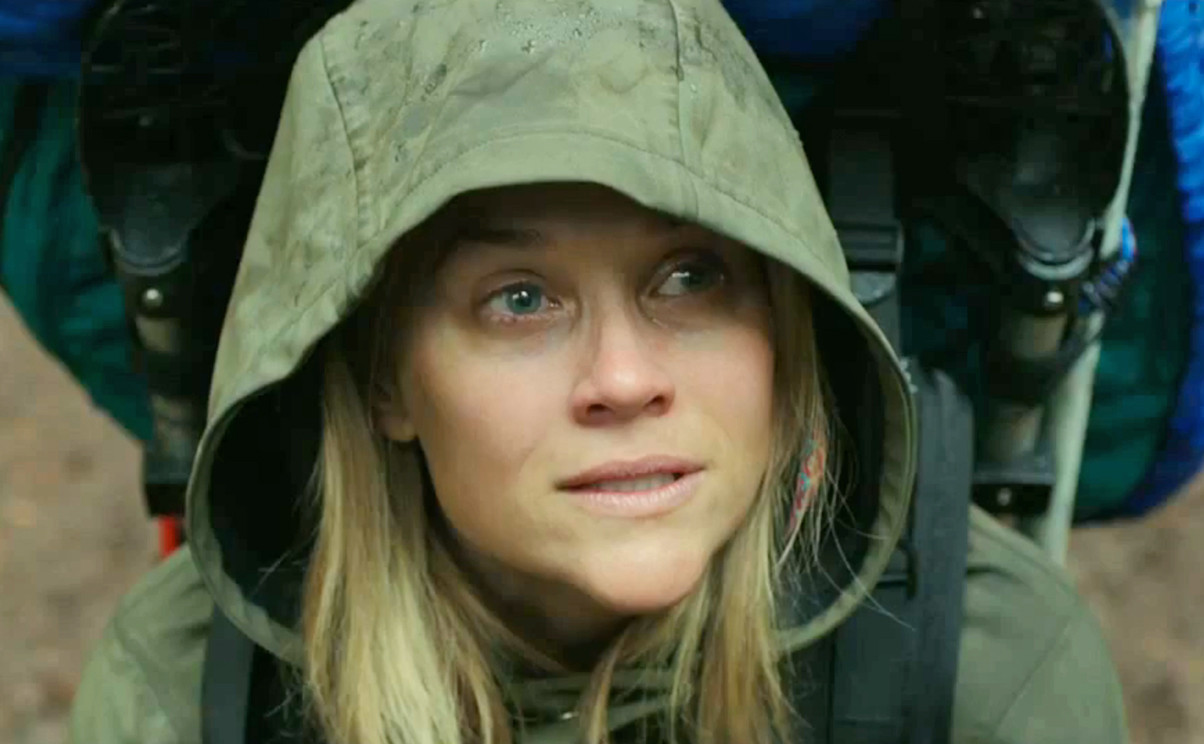Wild puts to rest goody-two-shoes Reese Witherspoon. Cheryl Strayed’s hike along the West Coast is filled with drug use, copious sex, and sailor swearing, which Witherspoon dives into. That’s not why Witherspoon chose the role though; Strayed’s foray into the wilderness is also a powerfully told tale of confronting one’s demons and moving on from traumatic life experiences.
Cheryl Strayed (Witherspoon) is the poster child for taking coping mechanisms to the extreme. After the death of her mother (Laura Dern) and resulting messy breakup of her marriage, Strayed elects to leave the world and partake in a thousand plus mile hike across the Pacific Crest Trail from Mexico to Canada. Along the way she meets lots of interesting people and works out how to move on from the hurt she is experiencing.
Wild has climbs literal and metaphorical mountains to be taken seriously. The premise of this film is kinda dubious: watching a person just fall off the grid in the most extreme way to confront their demons is a cinematic device to try to relate to people. Of course their is going to be eons of hiking metaphors: forks in the road, cleaning out the baggage, overcoming an obstacle, etc. Wild and director Jean-Marc Vallee get over this by subtle parts of a hiker’s experience. Strayed does not arrive at a psychological confrontation by seeing a fork in the road, but by letting her mind wander when she walks. She’ll start out with one word and revolve around it, find another word, then another, until a point where she realizes “hey, heroin helped me hide from the fact that my mother is dead.” A word, a picture, a tune: all of these things trigger Cheryl’s subtext into text, keeping the metaphors from generating groans. Since all forms of hiker have interesting mentalities, tension gets generated from Cheryl sussing out the intentions of people she meets on the mostly empty trail, with mostly non-manipulative results (except the very end). Finally, flashbacks give insight into Cheryl’s pre-trek life, and reveal new layers about her personality without becoming too obstructive to the journey. Anyone going on a wilderness journey alone should watch Wild to prepare for the kind of conflicts they will encounter.
Reese Witherspoon also keeps Wild tamed (I couldn’t help myself). The movie opens with Cheryl screaming at the top of her lungs, but then reigns her in. We don’t see any extended crying or screaming for at least an hour. Witherspoon combines exhaustion in the present with exasperation at her living situation in the past to paint an insular character learning to emote without going off the deep end. Witherspoon is also asked to be naked and openly disgusting with drug abuse and hook ups, which she also rarely emotes to showcase how lifeless Strayed had become. Opposite Laura Dern’s radiance and optimism (she’s very good here), Witherspoon has to convey naiveté and resentment alongside happiness with Cheryl’s cut short memories of her mother. Witherspoon has gotten here before with Walk the Line, and Wild makes her reearn her place among the acting elite.
Wild is clearly Oscar bait, but Reese Witherspoon’s desire to service the story keeps the movie from becoming overly pushy on that front. Witherspoon is on top of her game as Cheryl Strayed, even carrying that giant monster backpack herself for most of the trip. Strayed picked a hell of a trail too: on scenery alone, the Pacific Crest Trail ranks among the most beautiful locales I have seen. I’m not about to walk a thousand miles to see them though.


How can the premise be dubious, a “cinematic device”? This film is based on Cheryl Strayed’s memoir.